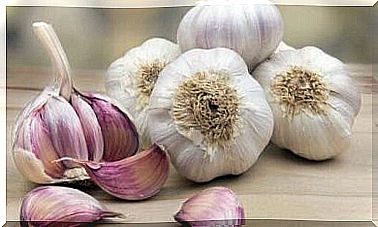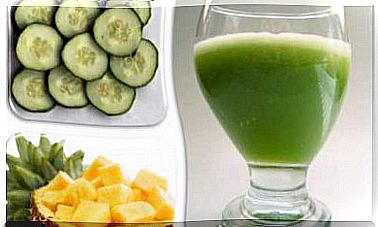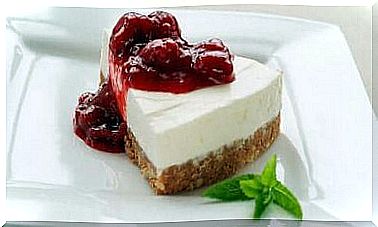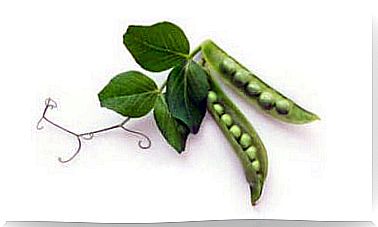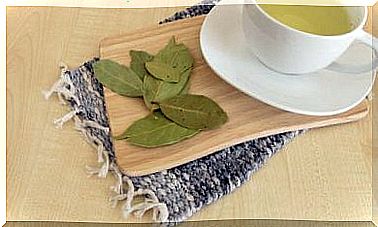Why Never Use Aluminum In The Kitchen?
Learn about the real dangers of using aluminum foil to cook food, as well as other precautions to take with it.
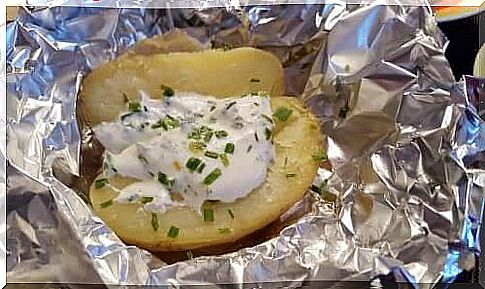
Even if a short time ago, aluminum foil was not in question in the kitchen, it is today. On the other hand, there has also been a lot of discussion about the side that should be in contact with food: is it the shiny side or the matt side?
In general, aluminum foil is used for three purposes: to cover surfaces where food is going to be cooked (in the oven, for example), to preserve food (packaging) or to keep it warm once they are cooked.
While aluminum foil is useful, easy to handle, and extremely affordable, is it really harmless? Is it so essential? Let’s dig deeper into the subject in this article.
Why not use aluminum foil in the kitchen?
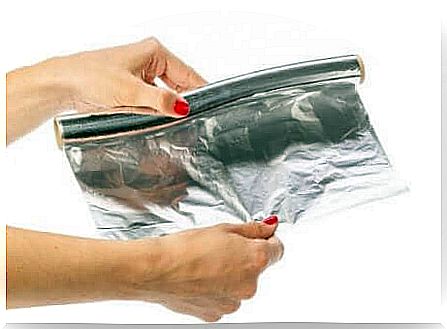
Aluminum foil is a very thin sheet that wraps around a cardboard cylinder so that it can be cut and easily used as needed. The thickness of the sheet is generally less than 0.2mm and is extremely flexible.
What is aluminum
Aluminum is one of the metals that has been used the most since the 20th century, after steel. It is mined from bauxite, a type of sedimentary rock. It has a very long lifespan and is a good conductor of electricity and heat. Here are some of its most notable properties:
- Tenacity: This is the ability of a metal to absorb energy before it breaks or deforms
- Malleability: it is a physical property that allows metals to be broken down into sheets
- Ductility: it means that it can be deformed by force without breaking. We thus obtain blades or wires of this metal
When is it harmful to health?
This metal (allied with other elements) is a very economical material that can be found in the form of cutlery, pots, pans and many other utensils in common use. However, it should be noted that the use of these utensils is not harmful to health.
However, wrapping foods in aluminum foil and putting them on a fire or in the oven at high temperatures can be dangerous. More specifically with certain types of food such as acidic or spicy foods. To understand this, let’s go over some details.
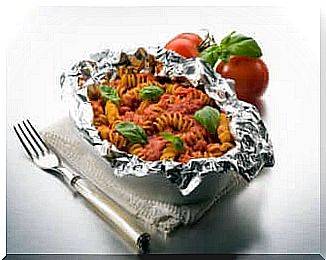
How does aluminum act on the human body?
Once aluminum enters the body, it can be excreted, but only in small amounts. In other words, a minimal intake of aluminum is not a problem. As an indicator, we can have the value of 40 milligrams per kilogram of weight per day.
However, it should be noted that, day after day, we are more exposed than we think to this metal. Indeed, we find it in various foods and places such as:
- Tea
- But
- Herbs
- Cooking salt
- Potable water
- Yellow cheese
- Aromatic spices
- Certain medications such as antacids
Among the most common disorders, with high traces of aluminum in the body, we can cite the following pathologies:
- Likelihood of suffering from Alzheimer’s disease
- Aluminum is extremely harmful to patients with kidney problems
- It can cause problems in patients with bone problems
- It reduces the growth rate of human brain cells
Avoid the use of this metal for cooking at high temperatures
An important factor in reducing the amount of aluminum is not to rub the pans after cooking the food. Indeed, these aluminum utensils tend to oxidize and form an inert layer which prevents the aluminum from mixing with the food.
The problem then arises when the food is wrapped with aluminum foil. The latter is disposable and does not create a protective layer. During cooking, the metal migrates to food and exceeds limits considered harmless to the body.
To conclude, there are no problems using aluminum foil in the kitchen for storing or handling food. However, it is strongly discouraged to use it for cooking at high temperatures.
